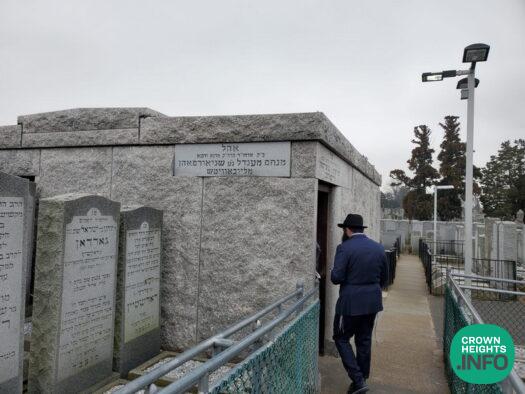
Weekly Story: Gimmel Tammuz
by Rabbi Sholom Avtzon
Since Gimmel Tammuz is this coming Thursday, I am writing this thought. As always, your feedback is most welcome.
Lately there have been a few articles written about how and what to discuss about Gimmel Tammuz, especially when we are speaking to our youth. As in every disagreement in Halachah, there is the guiding principle that there is validity to both approaches even if they are opposite of each other. In this week’s article, I am posting a thought which I often say when farbrengening with those who were raised after Gimmel Tammuz.
The Mitteler Rebbe says that whenever the Torah mentions a husband and wife, it is a reference to the relationship between Hashem and the Jewish people. He notes that the possuk in beginning of Ki Tzetzei describes when a man has two wives, one whom he loves and one with whom there is no harmony. The Mittelere Rebbe asks, Hashem promised that he will never replace the Jewish nation with a different one. So how can He have two wives? There is only one Jewish nation!
He explains that the two wives are a reference to Bnei Yisroel, just that they are alluding to different times in history. There were times when Hashem’s love to us was noticeable to the entire world. When He took us out of Mitzrayim, by Mattan Torah, and when the Beis HaMikdash was standing, just to name a few. Then there is a time of exile and persecution, when one might think that Hashem is upset or even angry at us.
The possuk continues, when it comes time to give over his possessions as inheritance the father cannot favor the son of the beloved wife, rather he should give it to the actual firstborn, even if it is the child of the wife he dislikes. This, the Mitteler Rebbe explains, is informing us, that when it will come the end of days, and Moshiach will take us out of exile, the question will be asked, in whose merit did we finally merit to be redeemed?
The natural instinct might be to attribute it to the great tzaddikim and individuals of yesteryear. But the possuk states emphatically, don’t say that! Give the possessions, give the credit, to the ben hasneuah, to the child who grew up in Galus. The redemption was on account of the children that grew up in a time of darkness, they didn’t witness to see the glory of Hashem, yet they nevertheless remained steadfast in their commitment to Him. They deserve all the credit.
So while your parents and some of your teachers saw the Rebbe and were present at his farbrengens etc, in a certain sense your connection/hiskashrus to the Rebbe is much deeper than ours.
In Chassidus it is explained that if something is revealed, as lofty as it may be, the fact that it was revealed or even has the ability to be revealed, demonstrates that it is not the essence (eitzem) of the item. For the essence is never revealed.
So, we who merited to receive something from the Rebbe, or attend his farbrengen etc, in general our connection is based on that interaction, which is only a revelation of part of the Rebbe’s greatness. While your connection is to the Rebbe’s essence itself since you never actually experienced an interaction or revelation with the Rebbe. So while you strive to hear from elders about him and learn his teachings, you are mekusher to his essence.
However, at the same time there is the saying of our sages, “Look at the eyes that saw it.” Even though you have a quality that we don’t have, at the same time we saw and heard things which inspire others.
Chassidus explains that the highest level in fulfillment of every mitzvah is doing it because this is Hashems will. As we say in the brocha, asher kidishunoo b’mitzvoisav v’tzivunoo – He sanctified us with His commandments and instructed us. This is the chok (essence) of every mitzvah. I am not doing it because of my understanding and my appreciation, but rather only because this is Hashem’s will. Yet at the same time, most mitzvos have reasons to them, and Hashem did this so that we humans should appreciate the mitzvah and fulfill it with zest and vitality, because human nature is that they are more emotionally involved in something that they appreciate and understand.
The generation that’s post Gimmel Tammuz, has the element of being connected on the level of chukim, not based on their understanding of what they physically saw and experienced with the Rebbe. You should maintain and strengthen your hiskashrus to the Rebbe’s etzem and simultaneously, do so with the appreciation of whatever he revealed, even if was only to others in the pre-Gimmel Tammuz generation.
May we all merit to the Higalus of Melech HaMoshiach and Torah Chadasha Mei’iti Tatzai.
Rabbi Avtzon is a veteran mechanech and the author of numerous books on the Rebbeim and their Chassidim. He can be contacted at avtzonbooks@gmail.com













Aharon Levine
Excellent! And beautifully written.